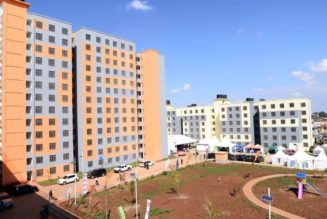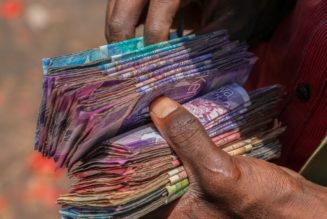Columnists
Enhance nighttime security on Kenya highways to spur 24-hour economy
Friday August 04 2023

Trucks awaiting to carry Cargo from ships at the Port of Mombasa on June 5, 2023. PHOTO | KEVIN ODIT | NMG
Last week President William Ruto issued an order for the Port of Mombasa to operate on a 24-hour basis. A similar decision had been made by the port management a few weeks earlier to receive, berth and discharge petroleum product ships at night, undoing a ban on nighttime petroleum navigational operations.
An order was also issued to reduce the number of weighbridges along the Northern Corridor highways. These actions can increase the transit service factor, while improving utilisation of national infrastructure and return on investment.
However, highway insecurity remains a major bottleneck to full port evacuation and highway utilisation, as trucks ferrying goods have to park overnight at those popular places like Mlolongo and Salgaa.
This also reduces the return on truck assets as the “ton-kilometre per day” utilisation factor is halved by night stopovers.
In respect of truck turnaround and cargo haulage time, the Central Corridor highway from Dar to Kigali beats our Northern Corridor, making it more competitive for transporters and cargo owners, who ultimately determine which ports to use.
Over to you Inspector-General of Police. How can Kenya increase nighttime security assurance on our highways to facilitate an effective 24-hour economy?
I am sure there are many other economic activities in Kenya whose capacity and productivity are restricted by nighttime insecurity, and these include industries, merchandise distribution to markets, and agricultural produce dispatch to markets.
Covid-19 forced the banking sector to institute e-platforms which turned out to be 24-hour banking service delivery tools, perhaps the most efficient innovation ever introduced in Kenya.
Other critical supporting services can be made available around the clock, especially the KRA services where shift operations require tax documentation.
In the area of energy, there have been experiments on how to utilise spare electricity capacity during off-peak hours when most of the nation is sleeping.
The promotion of 24-hour working patterns will indeed help to optimise returns on power supply investments.
National economic productivity and competitiveness are a function of how much we turn around physical and human assets to increase output, measured by the number of hours that equipment, facilities, and manpower are gainfully utilised.
For the same assets, two or even three shifts of eight hours will double or treble output. Indeed time is a free resource that we take for granted.
I am sure a stakeholder forum can brainstorm and kickstart momentum in the direction of a 24-hour economy. Indeed, a ‘sleeping’ nation can never be an economic tiger.
George Wachira, Petroleum consultant, [email protected]









